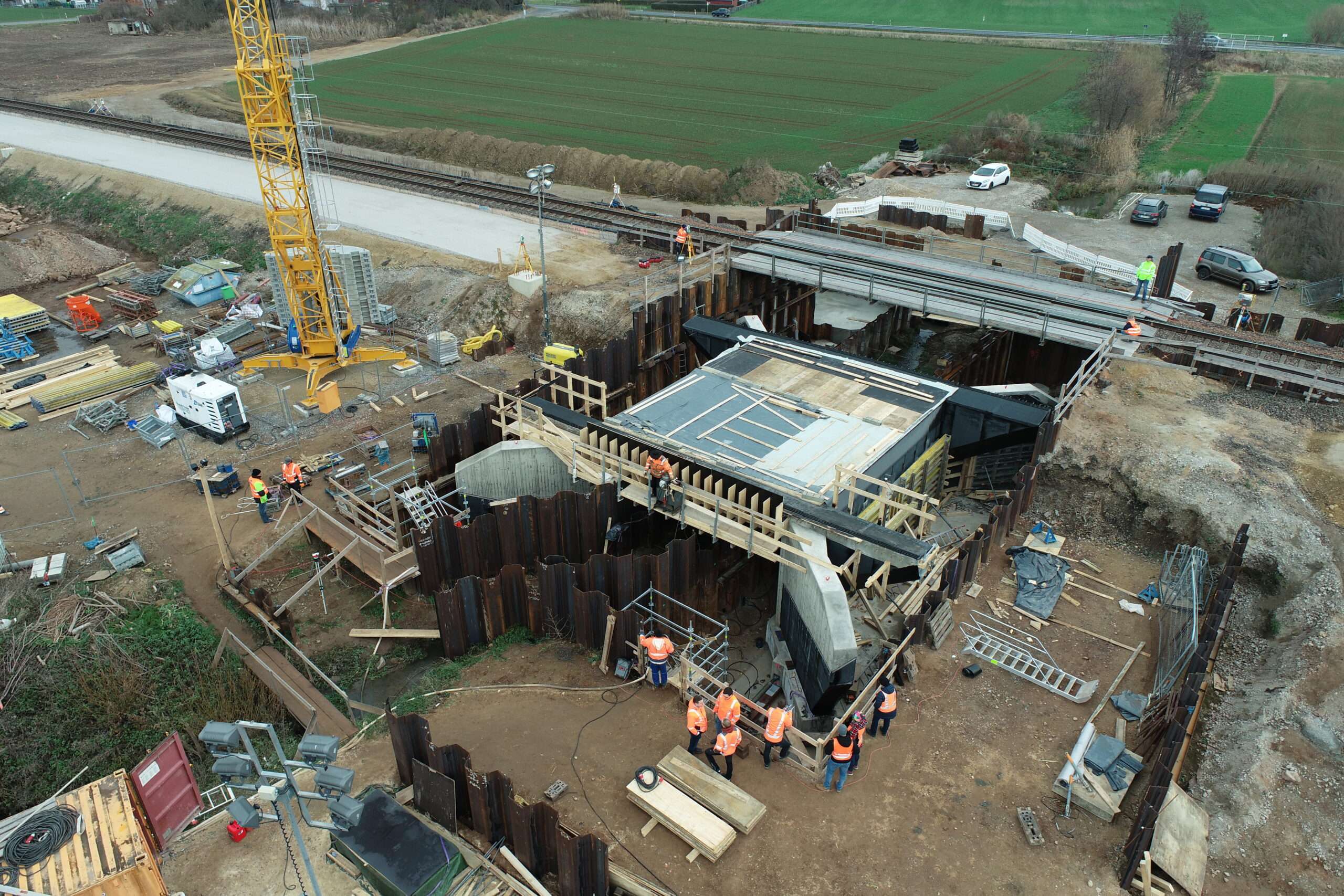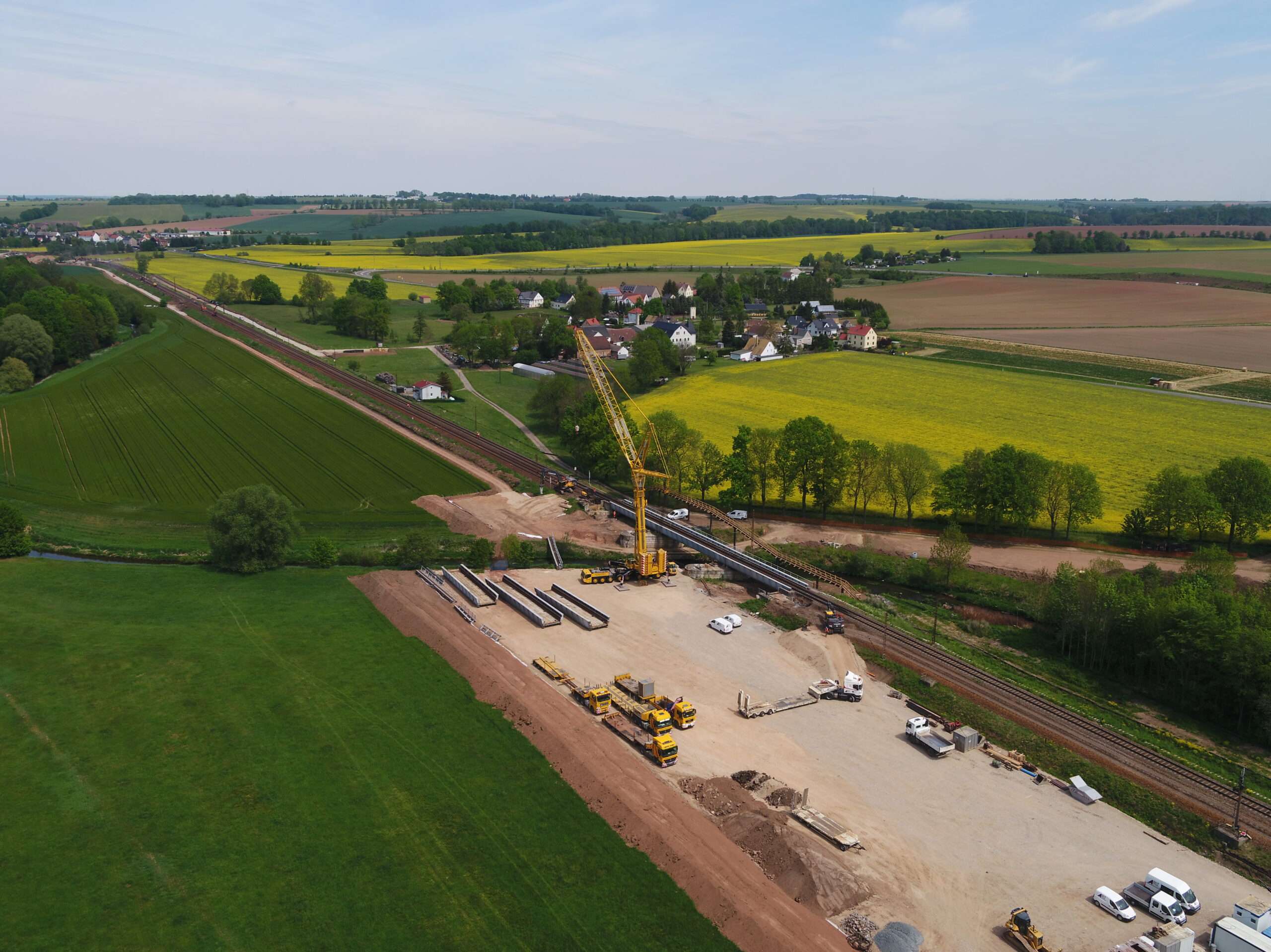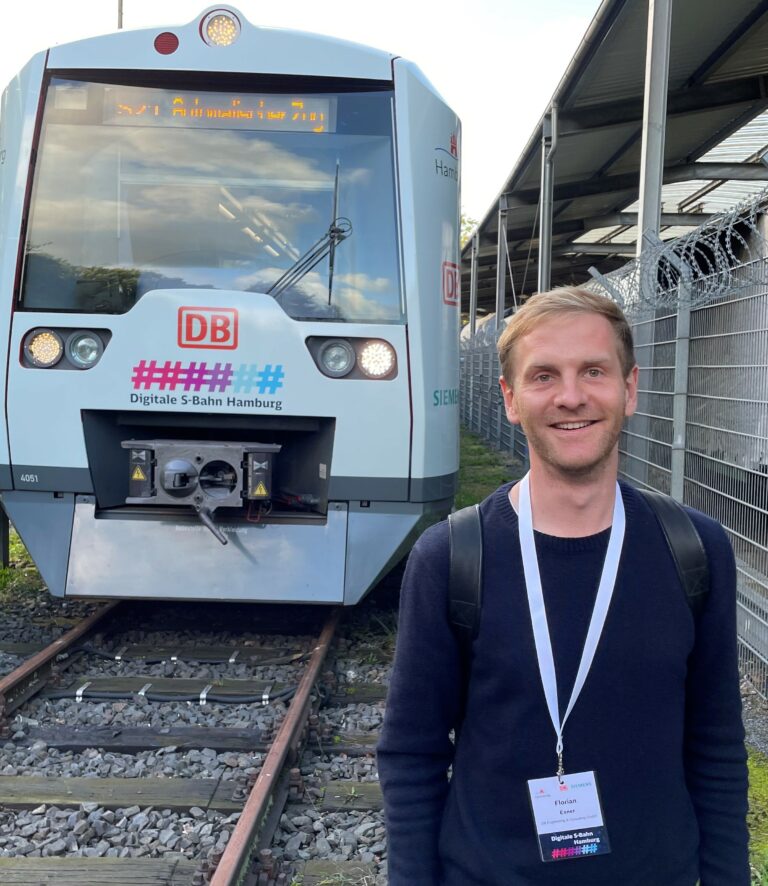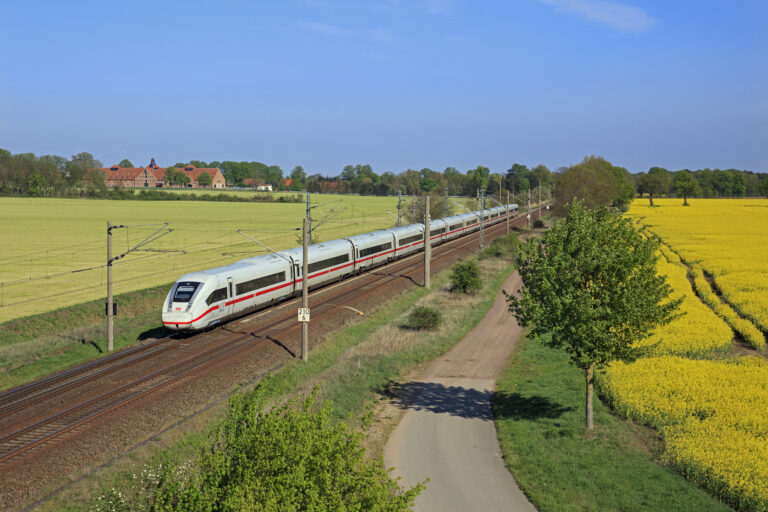DB Engineering & Consulting has taken over the complete construction supervision until completion of the second expansion phase of the Saxony-Franconia Main Line between the towns of Markkleeberg, Gaschwitz and Crimmitschau, where a total of 19 bridges are being renewed. In Zehma, a provisional bridge was brought in to ensure single-track operation during the next construction phases.

The extension of the Saxony-Franconia mainline is progressing. In the course of the second expansion stage between the towns of Markkleeberg, Gaschwitz and Crimmitschau, a total of 19 bridges are being renewed.
On behalf of DB Netz AG, DB Engineering & Consulting is taking responsibility for full construction supervision up to the completion of the overall project. It is also responsible for engineering services, such as subsoil and environmental assessments, as well as waste and construction supervision.
The big picture
The Saxony-Franconia mainline stretches over some 288 kilometers and connects the central and eastern German states of Saxony, Thuringia and Bavaria in the south. The line is being fully renovated in order to adapt it to current technical requirements, as well as to the future needs of local and long-distance passenger and freight traffic.
Making progress
Work has been underway since the beginning of 2020. The construction roads and site facility areas have been built, and even the sand lizards now have a new home. The main construction work on the line started in May 2020. Since then, the track and overhead line systems have been renewed, along with all culverts and overpasses and a bridge over the Pleisse River. The work came to a head with a ten-day track closure in mid-May 2020, during which the focus was on a spectacular excavation of the Almabrücke bridge near the town of Gössnitz.

Further north in Zehma, a provisional bridge was brought in to ensure single-track operation during the next construction phases. A total of five culvert structures were rebuilt. After a marathon 10 days of construction, the first train began rolling over the tracks on time on May 25, 2020. DB Engineering & Consulting is supervising the renewal of the track and overhead line systems until the end of 2022. This work will also cover the control-command and signaling technology, electrical systems and telecommunications along the entire section. From 2023 onwards, passenger trains will also be able to travel at speeds of up to 160 km/h on the Lehndorf – Gössnitz section of the mainline. The planned construction work faces major challenges, with all work carried out without interruption to service. This means that the line will be open for passenger and freight trains during the entire construction period. The tracks are due to be rebuilt one after the other, so that one track is always available.
The challenge of moving bridges
In November 2020 the replacement of a railroad overpass on the Lehndorf-Gössnitz section of the line near the town of Zehma was moved into place without interrupting service. The former structure, a two-way bridge, was replaced by a provisional bridge to maintain the single-track line between Lehndorf and Gössnitz during construction. Known as “HB-ZH 6”, the provisional bridge has a span of 16.80 m between the girder supports. To support the bridge, the girder supports were welded onto sheet piles, which also formed the shoring walls. The excavation pit was divided centrally lengthways. It was fully shored to both route the Podelwitz brook and protect the construction site against flooding.
The new railroad overpass at Zehma is a semi-open rectangular frame, constructed using in-situ concrete with slack reinforcement. The frame structure was prefabricated on site away from the track area. This first required the abutment foundations to be concreted on prefabricated shifting foundations, followed by the abutment walls with parallel and inclined wings. This allowed the frame structure to be lifted using presses after reaching the required concrete strength.
Once the sealing work was complete, the 670-tonne switching structure was lifted and moved on two HEB300 launching girders with Teflon-coated and silicone-greased incremental sliding plates on top. It was then moved into the horizontal final position under the provisional bridge. Next, the structure was vertically displaced by around 20 cm, before being cast with swellable concrete.
The renewal of the bridge structure poses a major challenge in terms of design, construction and supervision. After moving the new section into place, there is just 7.5 cm of space between the upper edge of the replacement bridge in its final position and the lower edge of the provisional bridge. Taking the maximum deflection of the auxiliary bridge during the movement process into account reduces this to just 2.7 cm.
January 2021 saw the backfilling of the excavation pit. The bridge was also prepared for the change in construction state this August, and a cross-section with a 1.9 m wide raised beaver berm was created. The track closure is due to last 14 days in total. During this time, the provisional bridge will be dismantled and the right-hand track will be commissioned on the new replacement structure. The next change of construction state in June 2022 will see attention switch to the left-hand track.
The Treben – Lehma – Altenburg and Lehndorf – Crimmitschau sections are also soon to be equipped for higher speeds. Four electronic signal boxes (ESTW) are planned, along with the renovation of seven stations and 16 railroad overpasses.
Contact
DB Engineering & Consulting
EUREF-Campus 14
10829 Berlin
Germany





